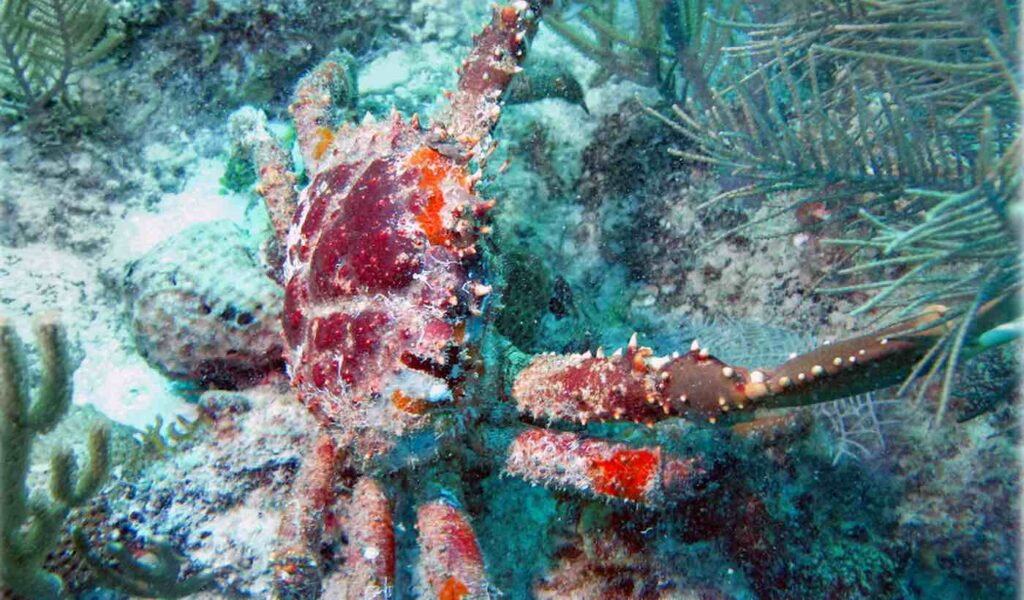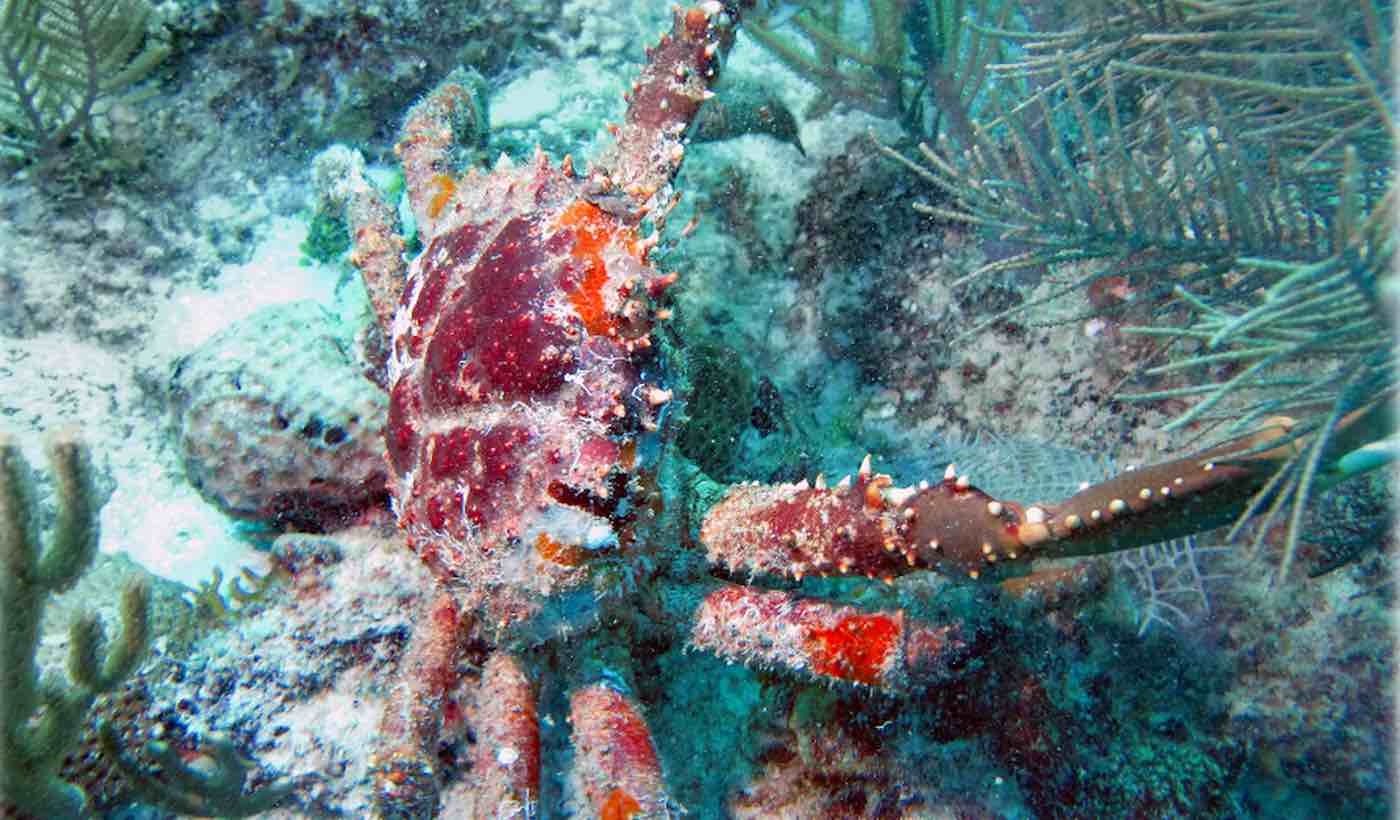Researchers in the Florida Keys have determined that coral reefs can be saved from invasive seaweed with the help of a particular species of crab lovingly called the “reef goat”.

The new study from Florida International University determined that not only can the Caribbean king crab munch the corals free of seaweed faster than all methods involving human hands, but that the increase of coral reproduction spawned a boom in reef fish numbers as well.
All types of marine habitat are important. Seaweed meadows and coral reefs both play vital roles in the health of the ocean and the health of our communities.
However in the same way that a mountain lion, which provides a valuable service by preying on diseased or elderly deer, wouldn’t be helping anyone if it took up residence in an office building, seaweed largely prevents coral from their key function in the ecosystem, just like the lion would prevent any of the terrified office workers from doing their work.
The researchers comment in their paper on the evidence of long-standing competition between seaweeds and corals.
This competition has been influenced heavily for over a century now by overfishing, climate change, and coral diseases, which resulted in many reefs being now too weak or too depleted to compete with seaweed.
RELATED: After Decades of Federal Protection, Hawaiian Coral Reefs Are Returning to Their Former Glory
Seaweeds too often are blocking sunlight from reaching the baby corals, while simultaneously releasing chemicals that prevent the corals from reproducing—as well as making them more susceptible to disease.
The voracious reef goats
The researchers hypothesized that if sufficiently distributed, the Caribbean king crab, the largest herbivore crustacean in the region, could clean corals free of clinging seaweed faster than human scrubbing, so they conducted a case-control study where they released reef goats on some reefs and let some others remain crab-less.
“We’ve had a lot of experience raising these crabs for human consumption, but I started looking at what their ecological role was on coral reefs. And they are like reef cows, or better yet, reef goats, because they will eat almost any type of algae, and they eat a lot of it,” Mark Butler from Florida International University, a co-author on the study, told Florida Keys News.
Butler, who worked on the research with Angelo Jason Spadaro, a professor at the College of the Florida Keys, said the voracious Caribbean king crabs (Maguimithrax spinosissimus) are prolific coral reef grazers.
Eating algae at a rate higher than any other grazer, including some species that can protect themselves from predation with chemicals or other defense strategies, the crabs were able to reduce seaweed cover by 80% compared to some reefs, while a 3 to 5 fold increase of both baby corals and fish species added to the successful outcome.
The study also boasts something becoming rare in many scientific fields of study — reproducibility.
“The generality of our results was validated by nearly identical results in two separate field experiments conducted at different locations and in different years,” write the authors.
MORE: Family Sells Home to Move to the Smallest African Country and Save Its Coral Reefs
On dry land, goats have been used as ground clearers for thousands of years, as they eat everything from clover and grasses to poison oak and invasive blackberry thorns.
Hopefully, the brilliant results from Butler and his team can solidify Caribbean king crabs as their benthic equivalent at the bottom of the sea.
SHARE This Claw-some News With Coral Lovers on Social Media…





















This all sounds exciting, as scientists discover new reefs and now goat crabs. My only concern is are there natural predators/controls to keep these guys from over-grazing & doing harm? That seems to have been forgotten in other programs like this.